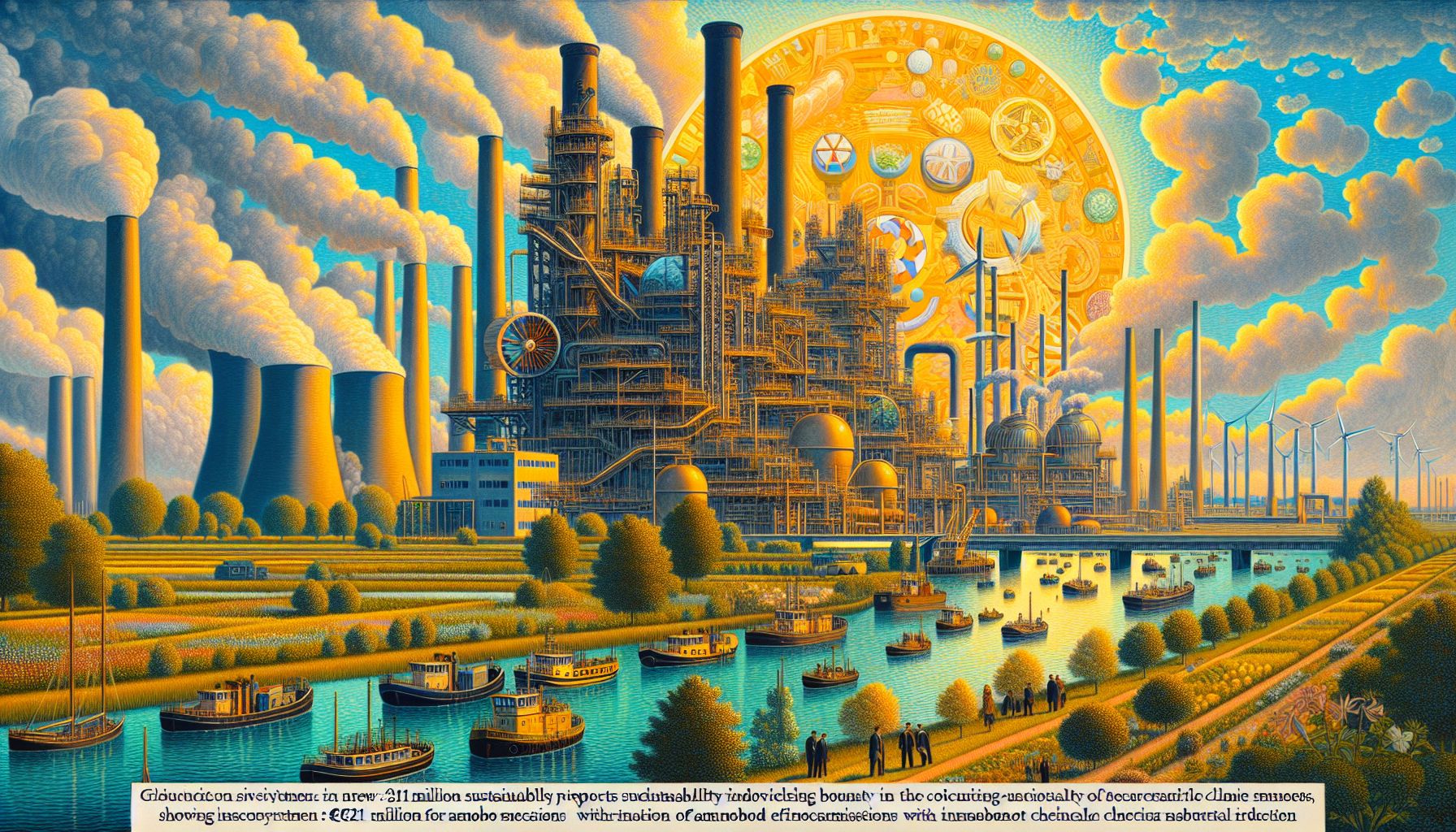Dutch Government Unveils New Subsidies to Boost Industrial Sustainability

The Hague, Tuesday, 22 October 2024.
The Netherlands has introduced new subsidies aimed at promoting sustainability in the industrial sector. Key initiatives include the €211 million National Investment Scheme for Industrial Climate Projects and a €54 million subsidy for ammonia reduction. These measures are part of a broader strategy to support innovation in sustainable technologies and reduce greenhouse gas emissions, reflecting the government’s commitment to industrial decarbonization.
A Comprehensive Approach to Industrial Decarbonization
On 21 October 2024, Minister Hermans of the Ministry of Climate and Green Growth announced the launch of the Nationale Investeringsregeling Klimaatprojecten Industrie (NIKI), a robust subsidy program with a budget of €211 million. This initiative is set to commence in the first quarter of 2025 and aims to bolster innovative CO2 reduction technologies within the industrial sector. The introduction of the Subsidieregeling voor bovenwettelijke ammoniakreductie, with a funding allocation of €54 million, further underscores the Netherlands’ strategic focus on achieving a 23-30% annual reduction in ammonia emissions by 2028[1].
Focus on Renewable Energy and Emission Reduction
Complementing these new initiatives, the Dutch government continues to support existing programs such as the SDE++ and DEI+ subsidies, which play a critical role in sustainable energy investments and innovative energy projects. These subsidies are pivotal in driving the reduction of greenhouse gas emissions. Moreover, the development of demand subsidies for renewable hydrogen is in progress, which aims to incentivize its use as a low-carbon fuel in industrial applications. The VEKI-regeling and OWE-regeling further accelerate investments in CO2-reducing technologies and large-scale renewable hydrogen production via electrolysis, respectively[1].
The Role of Effective Carbon Rates in Policy Implementation
The implementation of these subsidies aligns with findings from the Netherlands Bureau for Economic Policy Analysis, which highlights carbon pricing as the most efficient instrument for climate mitigation. The concept of Effective Carbon Rates (ECRs) plays a crucial role by providing a metric to measure taxes on fossil fuel use and greenhouse gas emissions per unit emitted. The analysis of ECRs underscores the importance of reconciling fossil fuel subsidies with the broader objective of reducing greenhouse gas emissions[2].
Addressing Hydrogen Emissions
In parallel with these initiatives, there is a growing emphasis on monitoring hydrogen emissions, particularly in industrial settings. A study conducted at the Chemical Park Delfzijl in the Netherlands utilized advanced AirCore sampling techniques to detect small but persistent hydrogen emissions. These findings highlight the necessity for rigorous monitoring and verification of hydrogen emissions, given their indirect climate effects and potential to exacerbate global warming if left unchecked[3].
Conclusion: A Path Forward for Industrial Sustainability
The Dutch government’s commitment to enhancing industrial sustainability through targeted subsidies and innovative technologies marks a significant step forward in addressing climate change. By fostering a supportive environment for CO2 reduction and renewable energy adoption, the Netherlands aims to position itself as a leader in sustainable industrial practices. These efforts not only contribute to domestic environmental goals but also align with broader international climate commitments[1][2][3].

